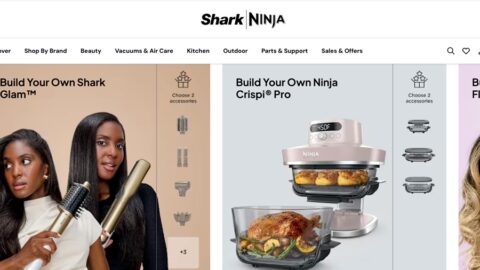Private label continues to grow in the U.S. as today’s more cost-conscious and technologically empowered consumers question the value of their shopping baskets. Overall sales of U.S. store brands rose 3.9% in 2011, compared to 0.6% for national brands in the same time period, the PLMA/The Nielsen Company, reported in a white paper produced by Planet Retail and Trace One.
Some of the factors affecting the boost in private label include food price inflation and financial constraints, prompting grocery retailers to scramble for new ways to squeeze costs from their businesses. Additionally, grocers are attracted by the value-added attributes and profit opportunities offered by private label.
In order to produce and market better private label brands, grocery merchants are recruiting talent from fast moving consumer goods (FMCG) companies. Two leading chains in the U.S., SuperValu and Safeway, are among those merchants.
These key points and others were addressed in a recent webinar co-hosted by Planet Retail, a global retailing analyst firm, and Trace One, a solutions provider for the worldwide private label industry. The webcast served as an introduction to the companies’ white paper, titled: U.S. Private Label: Growth In A Shifting Retail Landscape.
The white paper estimated private label penetration of food sales (unless otherwise noted) at leading U.S. grocery retailers in 2011 was:
· Kroger: 27% of grocery dollars and 35% of units
· Safeway: 25%
· Walgreens: 20.5%
· Target: 20%
· Costco: 18%
· Walmart: 18%
· CVS Pharmacy: 14.8%
“The distinction once held by national brands is becoming diluted in an increasingly prolific retailer environment in which consumers can buy these branded groceries in a number of channels today, from grocery to mass merchandise to drugstores,” said Natalie Berg, Global Research Director for Planet Retail, during the webinar. “Now dollar stores aggressively are adding food items, causing the largest retailers to reinforce their private label strategies. Even Walmart recognizes that the dollar store is a credible threat to their business.”
Berg cited a number of reasons U.S. grocers should be motivated to expand their private label presence, such as:
· Capitalizing on lifestyle trends;
· Winning on price;
· Filling gaps in assortment;
· Driving profit amid rising food costs;
· Enabling segmentation and tailoring;
· Leveraging shopper relationships; and
· Acting as a point of differentiation.
Contributing to the success of private label are greater in-store visibility and the narrowing of price and quality gaps that once separated store brands from national counterparts. Today’s consumers are more willing to consider private label as a viable choice.
Other key trends noted in the white paper include:
· Primarily due to regional acquisitions, many U.S. grocers have large, complex private label portfolios that require cohesive strategies;
· Value remains top-of-mind in 2012;
· Re-investment in economy line branding continues;
· There is notable activity in the speciality/niche brand space;
· The “Health and Wellness” segment should be exploited;
· Underpenetrated urban areas will be a key battleground for private label;
· Private label will be the cornerstone to the Drug Food offer;
· Private label will buffer margins at small box; and
· Marketing focus is shifting to the shopper.
The white paper elaborated that today’s retailers are able to shift investment from pricing strategies to developing, reinventing and innovating the private label space through new lines, varieties and packaging. Most importantly, retailers are becoming savvy brand marketers ― no longer just adding products but building brand equity to ensure they achieve staying power and influence purchase behavior. In addition, with private label, retailers have the ability to be flexible, launch across a range of categories, and control shelf space and store promotions.












